Most Popular Baby Names From the Last 100 Years
Since 1880, the United States Social Security Administration (SSA) compiled lists of the most popular baby names for girls and boys, making it the best resource for parents who want to know what names are in fashion. It’s an excellent jumping-off point, whether parents want to follow the trend, are interested in traditional monikers or opt to go with a completely unique baby name.
From Mary to Mason and John to Olivia, here’s our list of the top 50 most popular baby names from the last 100 years.
1920s: Charles
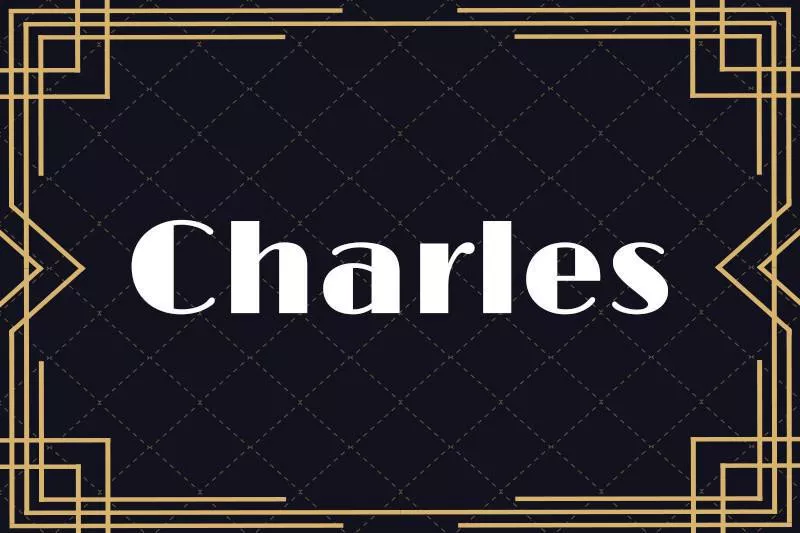
Getty Images
Charles was a top 10 name for boys from the 1880s to the 1950s. It started to slip down the SSA chart in the 1960s but recently started creeping upwards, securing the No. 52 spot in 2018.
Meaning “free man,” it has French and German roots and is one of those traditional names that’s unlikely to ever go out of style, especially with Prince Charles being first in line to the British throne.
1920s: Mary
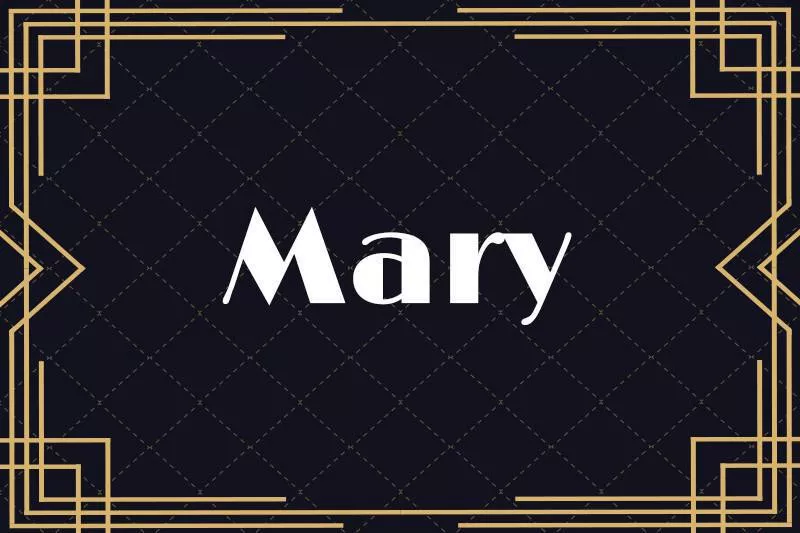
Getty Images
The Hebrew name Mary, which means “bitter,” was the No. 1 girl’s name in the 1920s, and it’s still fairly popular today. In 2018, it ranked No. 126 on the official SSA list.
Whether you’re inspired by religion, royalty, literature or pop culture, this name is guaranteed to be around in another 100 years.
1920s: Robert
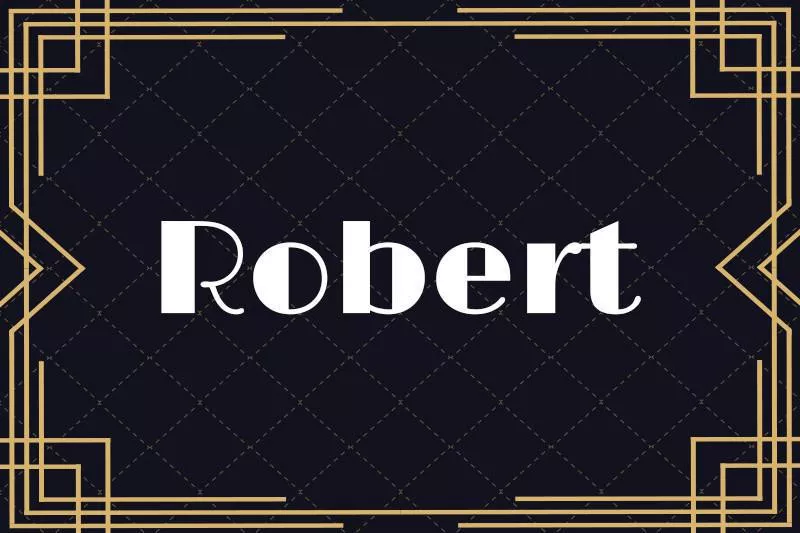
Getty Images
Robert was the top-ranking boy’s name in the 1920s. Since then, it’s never fallen out of favor with U.S. parents, appearing in the top 100 every year for the last century.
With Robert Kennedy, Robert De Niro and Robert Pattinson among its famous bearers, it’s perhaps no surprise that this name means “bright fame.”
1920s: Dorothy
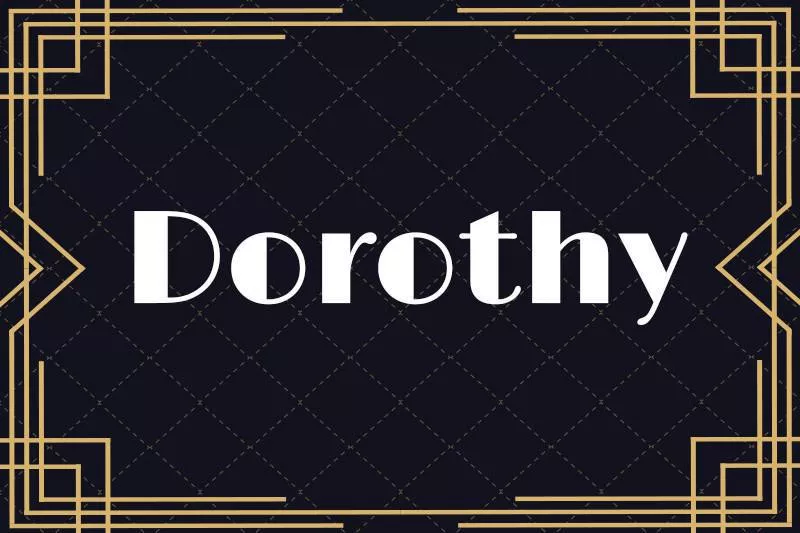
Getty Images
The English variation of the Greek name Dorothea, Dorothy means “gift of God.” But to many, it means ruby slippers and the Land of Oz. That said, the name was most popular years before the world fell in love with Judy Garland’s character in the 1939 movie “The Wizard of Oz.”
In the 1920s, Dorothy was the second most popular name for girls.
1920s: John
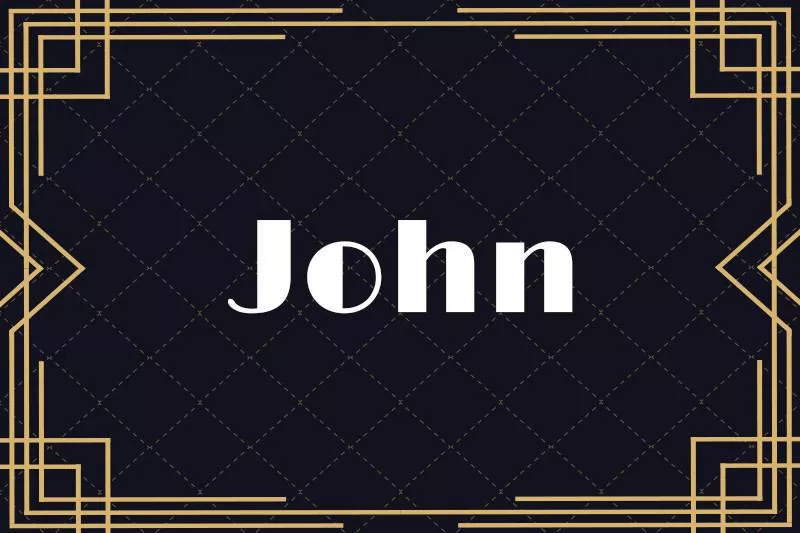
Getty Images
When SSA naming records began in 1880, John was the top-ranking boy’s name. It held onto this position until it was overtaken by Robert, but to this day, John (meaning “God is gracious”) remains a popular choice for parents looking for a timeless name.
The many celebrities who’ve chosen John for their sons include Bono, Michelle Pfeiffer, Lauren HIll and Johnny Depp.
1930s: Betty
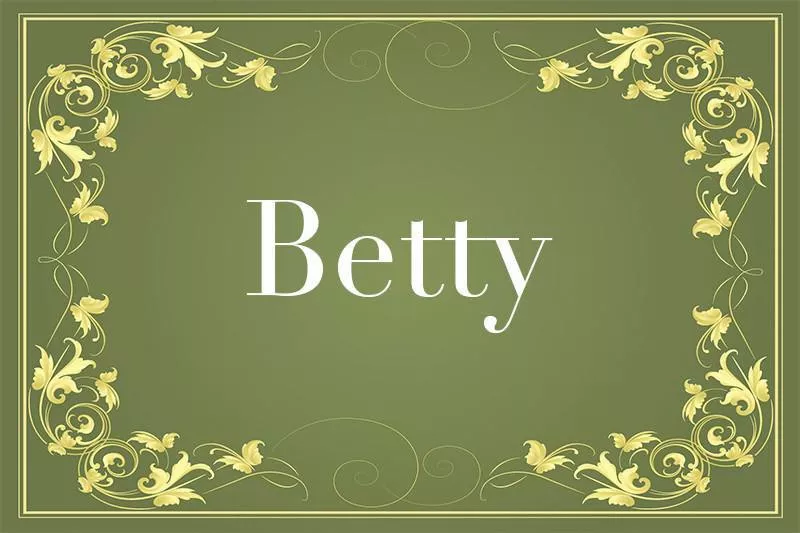
Getty Images
Although it was originally a short form of Elizabeth, Betty held its own as one of the most popular girl’s names in the 1930s.
Meaning “pledged to God,” it’s made regular pop culture appearances since then, from the beguiling animated character Betty Boop to the title character on ABC’s “Ugly Betty,” played by America Ferrera.
1930s: James
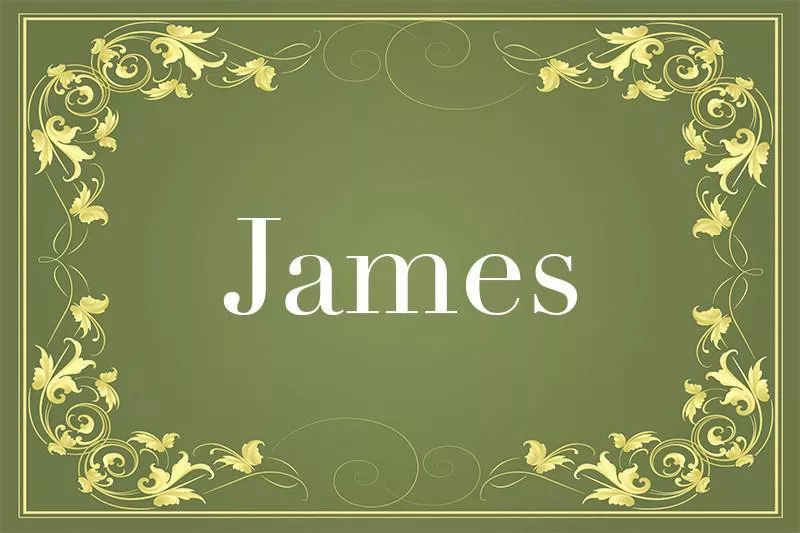
Getty Images
James was the second most popular boy’s name in the 1930s, and it’s one of the few names that’s rarely dropped out of the top 10.
Meaning “supplanter,” it ranked fourth on the U.S. chart in 2018 and is even more popular in Ireland and Scotland. It’s also increasing in popularity as a girl’s name — making it a gender-neutral name that would have been unthinkable back in 1936.
1930s: Barbara
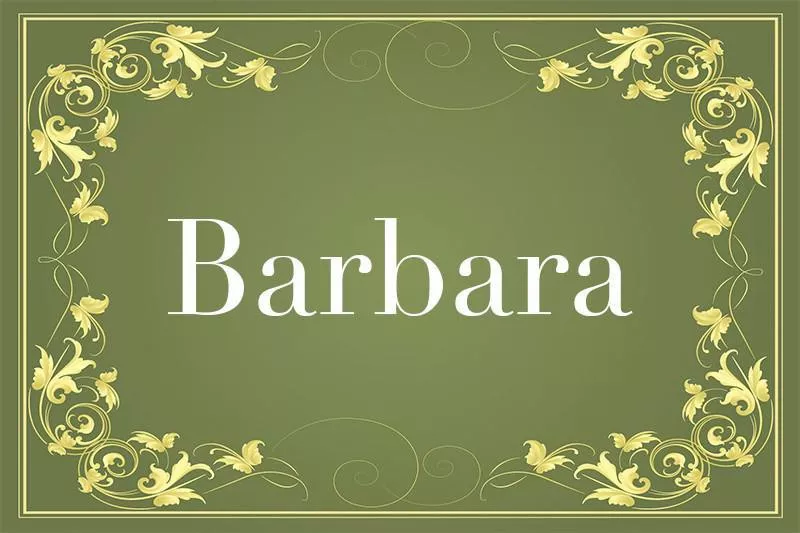
Getty Images
Hot on the heels of Betty in the 1930s was Barbara, a name of Latin origin meaning “foreign woman.” It remained a hot choice until the 1960s, after the world’s most famous doll, Barbara Millicent Roberts (best known as Barbie) was born.
Today, Barbara is perilously close to dropping out of the top 1,000.
1930s: William
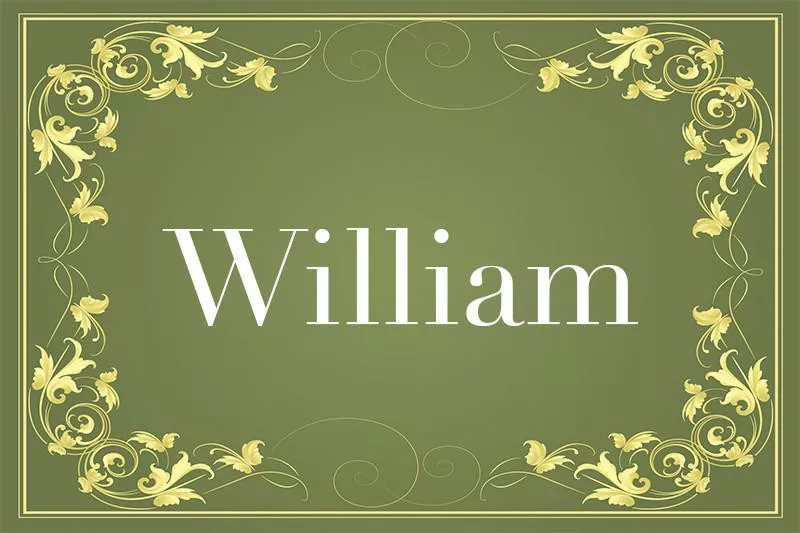
Getty Images
Meaning “resolute protector,” William has been one of the most enduring boy’s names since records began. It comes with a range of diminutives, from Billy to Will, that have been featured time and time again on the big and small screen, in everything from “Harry Potter” to “Will and Grace.”
And let’s not forget its regal status, as Prince William, Duke of Cambridge, is second in line to the British throne.
1940s: Linda
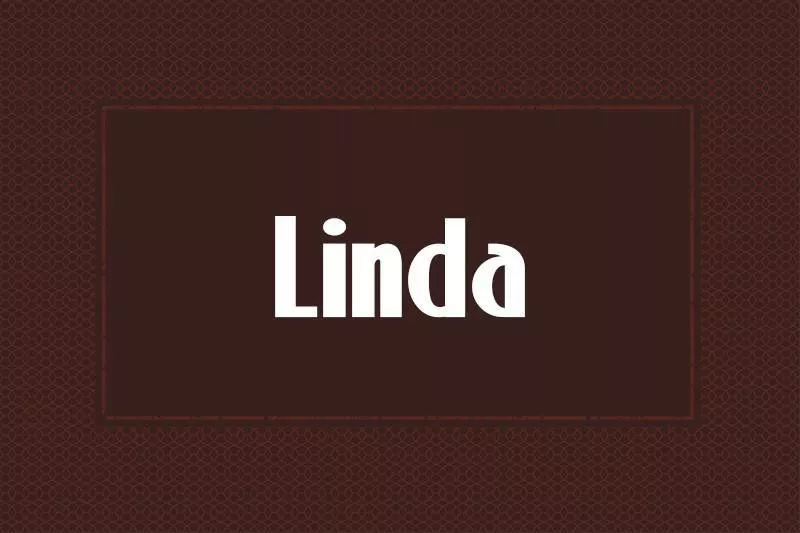
Getty Images
The Spanish, Portuguese and Italian word name Linda means “pretty.” It made a big impact in 1947 when it knocked Mary out of the top spot on the girl’s name chart, but it’s reign was short-lived.
By the early 1950s, Linda was on the decline again, and it’s fallen steadily since then.
1940s: Richard
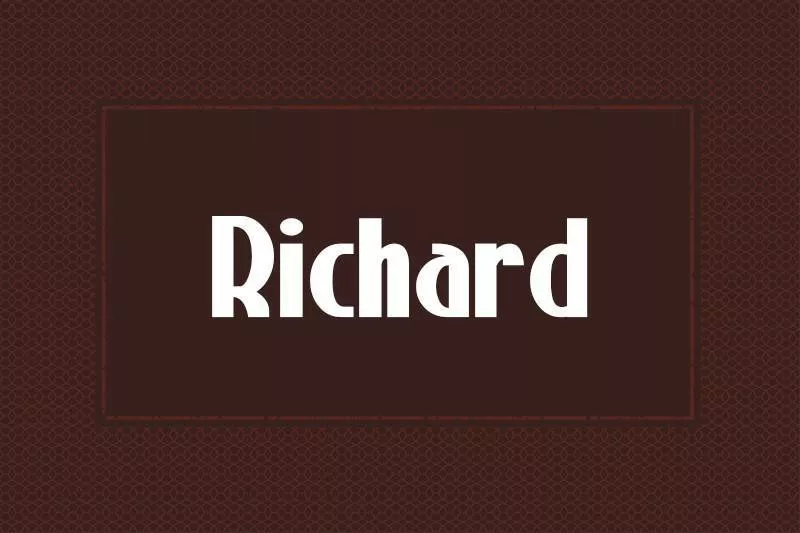
Getty Images
Richard, the “dominant ruler,” is a German name that was a royal favorite for centuries.
It stayed in the top 10 until the 1970s, and although it’s never enjoyed the same level of success, its 2018 ranking of No. 188 shows there are still U.S. parents who favor classic, somewhat formal names for their baby boys.
1940s: Patricia
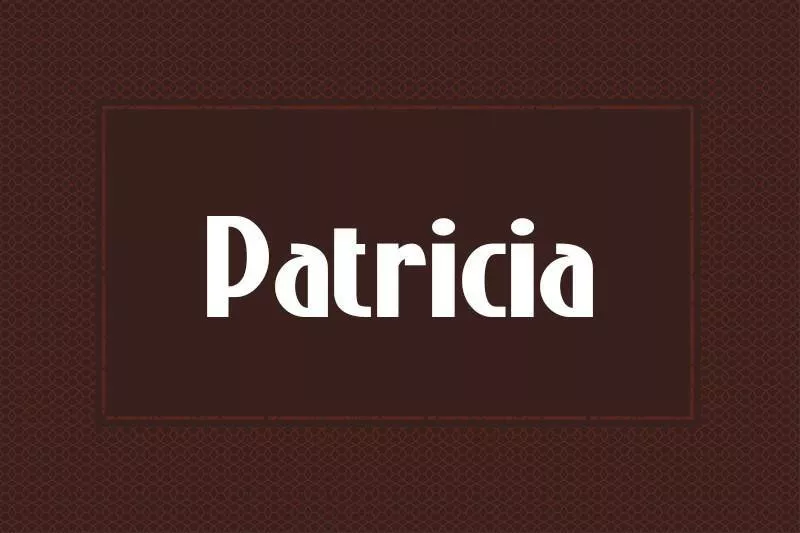
Getty Images
Hugely popular from the 1940s to the 1960s, Patricia, meaning “noble, patrician,” has roots in royalty. Queen Victoria’s granddaughter, Princess of Connaught, was christened Patricia — although she went by the nickname Patsy.
Other famous bearers of the name include the actress Patricia Arquette and the novelist Patricia Highsmith.
1940s: David
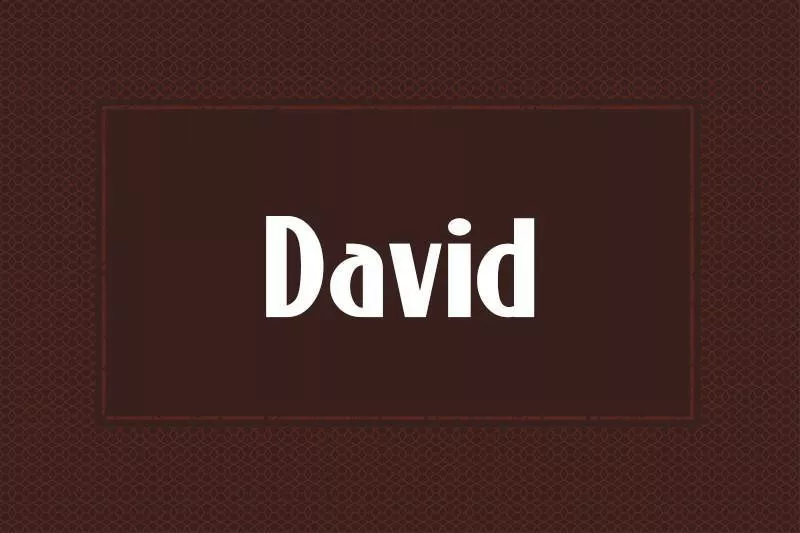
Getty Images
David means “beloved,” and it’s certainly been cherished by the American public since baby name records began.
From a starting position of No. 18 in 1880, it climbed to an all-time high of No. 2 in 1968. David is less popular today but still gets plenty of love, ranked at No. 22 in 2018.
1940s: Carol
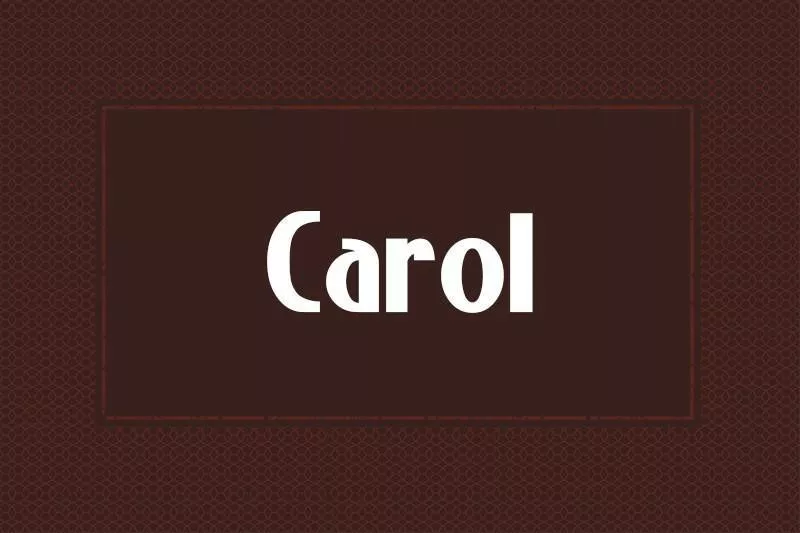
Getty Images
A popular girl’s name in the 1940s, Carol means “free man” and is the female equivalent of Charles.
It dropped out of the top 1,000 in 2007, but the longer version, Caroline, is more popular than ever, ranking at No. 55 in 2017.
1950s: Susan
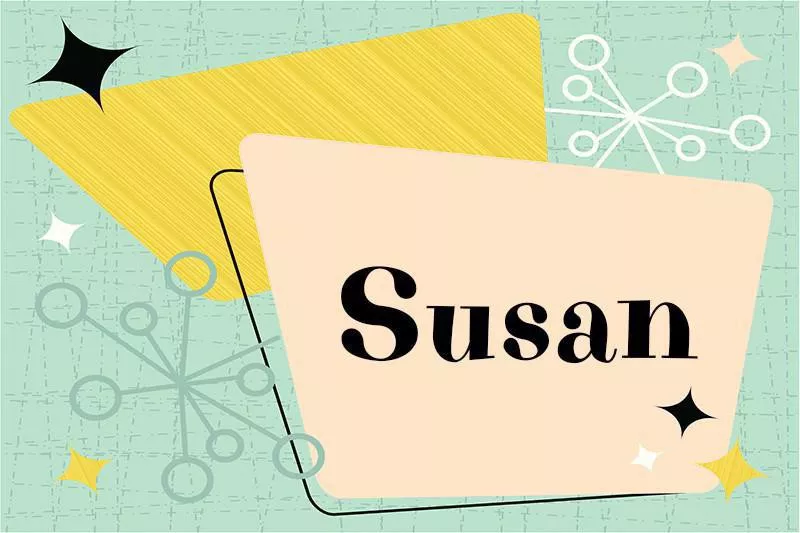
Getty Images
The short form of Susannah, Susan was enormously popular during the 1950s and 1960s. Currently listed on the wrong side of the top 1,000, it seems unlikely to make a comeback, but you never know.
It could also be a clever way to give your daughter a flower name without being too obvious about it: Susan means “lily.”
1950s: Thomas
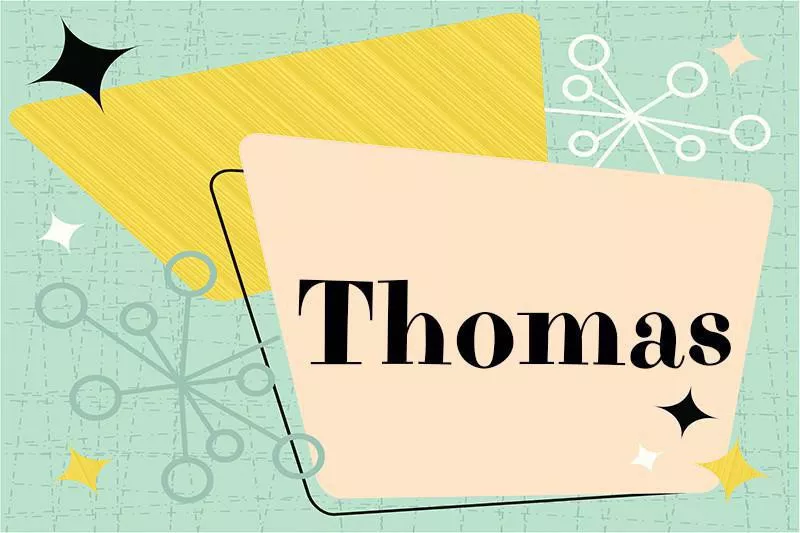
Getty Images
As one of the most popular baby names for centuries, Thomas remains firmly in the top 100, both in the U.S. and several other countries, including Australia, England, Scotland and Italy.
Meaning “twin,” it was chosen by President Abraham Lincoln and, more recently, actors Jack Black and Dennis Quaid and singer Luke Bryan, for their sons.
1950s: Deborah
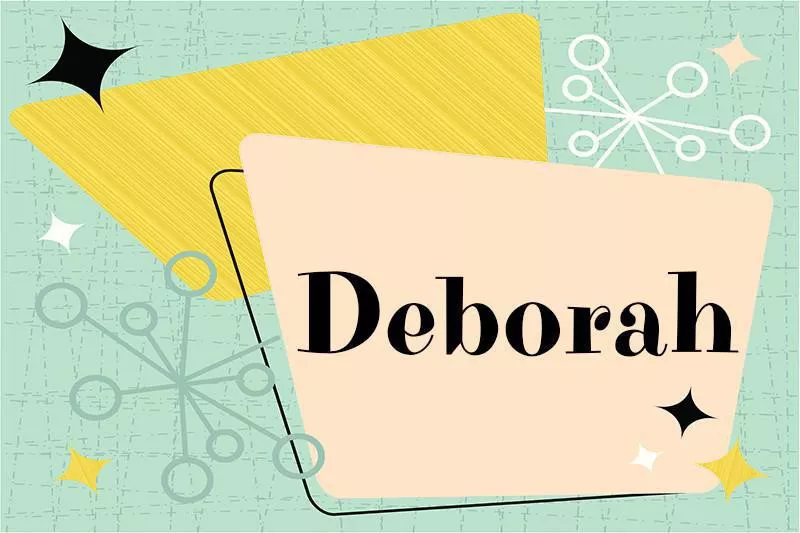
Getty Images
The Hebrew name Deborah, which means “bee,” has triumphant girl-power roots. The biblical Deborah was a heroic poet and prophet who led a successful Israelite revolt against the Canaanites.
It was the second most popular name in the U.S. in 1955 and stayed in the top 10 until 1962.
1950s: Mark
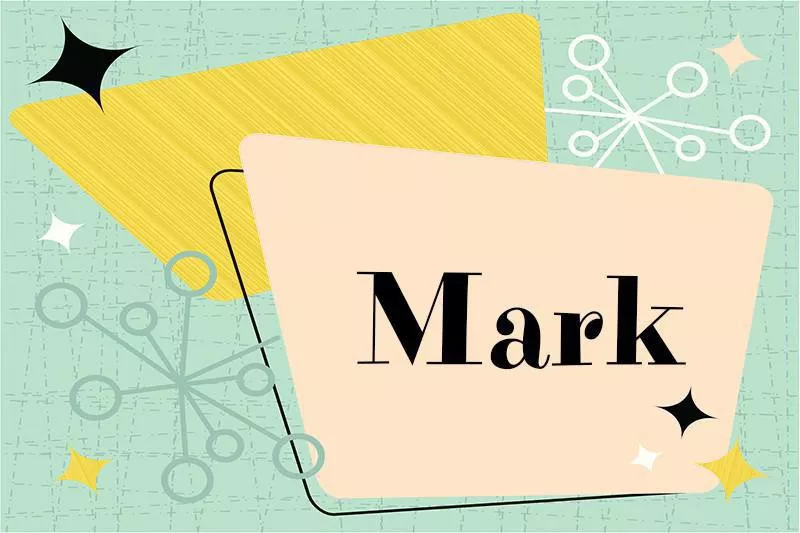
Getty Images
“Warlike” Mark enjoyed a surge in popularity in the 1950s and reached No. 6 on the boy’s name chart by 1960.
It’s stayed safely within the top 300 in more recent times — perhaps thanks to actors Mark Ruffalo and Mark Wahlberg and social media mogul Mark Zuckerberg — claiming a very respectable No. 210 in 2018.
1960s: Lisa
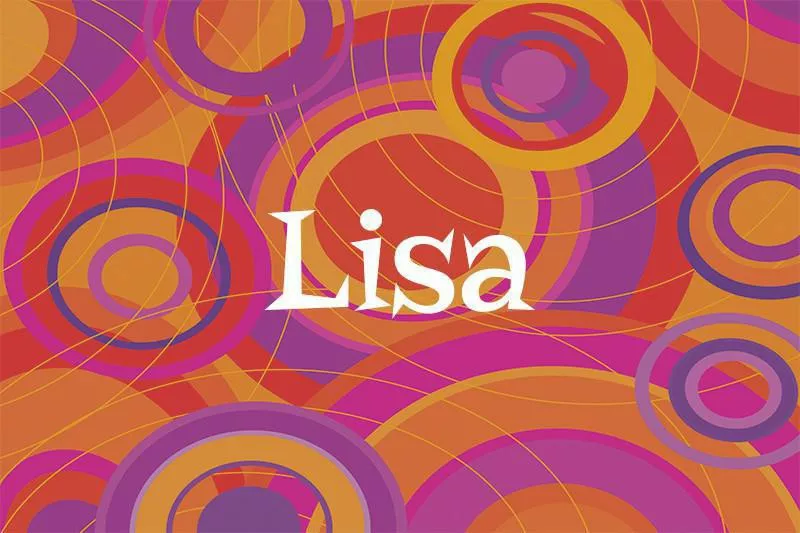
Getty Images
Another of Elizabeth’s many diminutives, Lisa (meaning “pledged to God”) was the most popular girl’s name in the 1960s, and it remained in the top 20 until the early 1980s.
It’s been on a downward slope since then. Not even contemporary TV Lisas like Lisa Simpson (“The Simpsons”) and Lisa Braden (“Supernatural”) have sparked a revival.
1960s: Michael
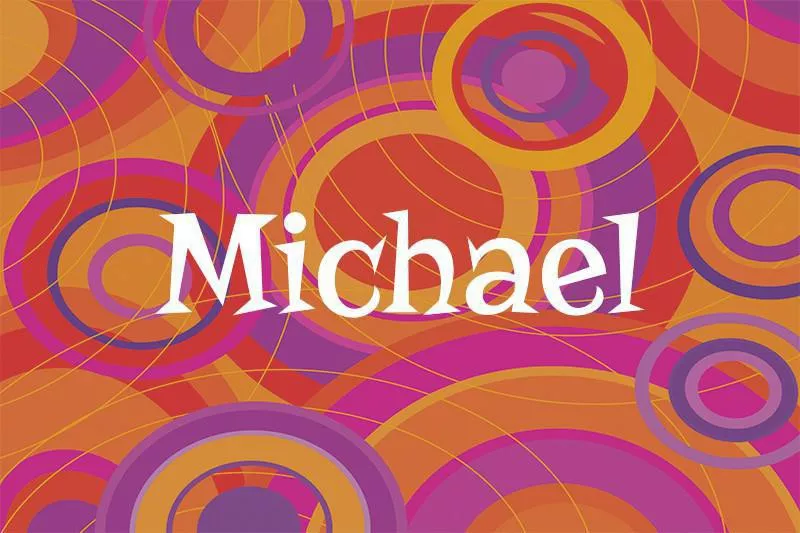
Getty Images
The Hebrew name Michael derives from the rhetorical question “who is like God?” It was the No. 1 American boy’s name from 1956 to 1998, during which time the world was introduced to several bearers of the name who require no introduction, such as Michael Jackson, Michael Jordan and Michael Douglas.
Michael is less popular today, but it still ranked at No. 14 in 2018. And of all contenders, it’s held the top spot most often (44 times) over the last 100 years.
1960s: Karen
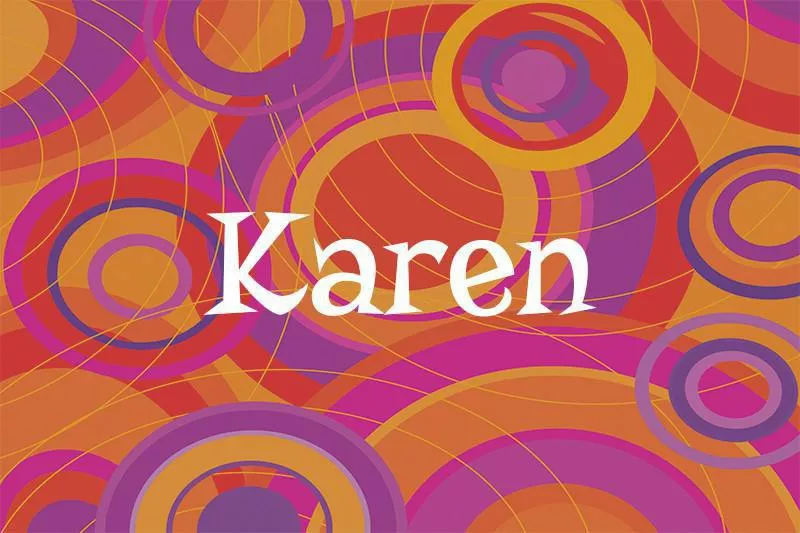
Getty Images
Before Karen became a meme that represented an argumentative white woman, it was simply a hugely common name among women of a certain age.
This is due to its popularity during the baby boom of the early 1960s — it was No. 3 in 1960 and the fourth most popular of the decade as a whole, after Lisa, Mary and Susan. The Danish variation of Katherine, it means “pure.”
1960s: Jeffrey
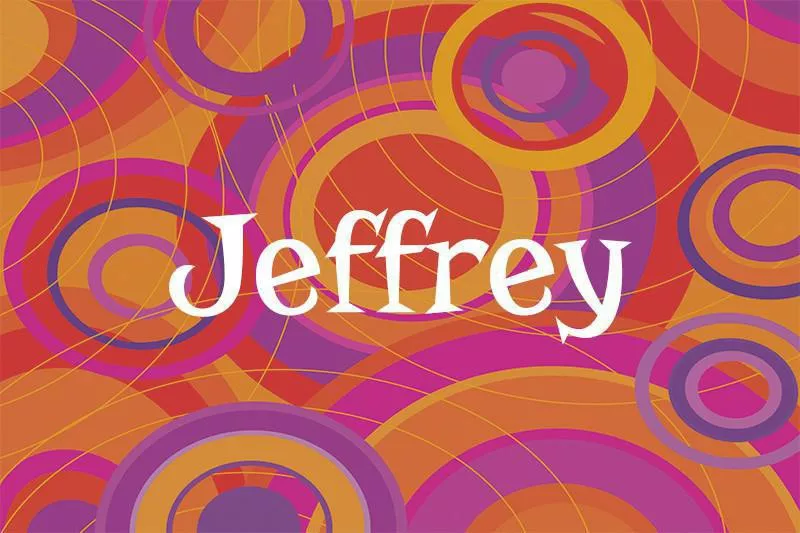
Getty Images
A fixture in the top 20 from the mid-1950s until 1978, with an all-time high of No. 9 in 1966, Jeffrey is the Americanized version of Geoffrey, which means “pledge of peace.”
Famous bearers include singer-songwriter Jeff Buckley, actor Jeffrey Dean Morgan and novelist Jeffrey Eugenides.
1970s: Jennifer

Getty Images
A more accessible variation of the Welsh Guinevere, Jennifer means “white shadow, white wave.” It was the No. 1 girl’s name from 1970 through 1984, and although it’s fallen in popularity ever since, it still remains in the top 400.
In terms of star quality, look no further than Jennifer Aniston, Jennifer Lawrence, Jennifer Lopez and Jennifer Connelly as proof for the A-list potential of Jennifer.
1970s: Brian
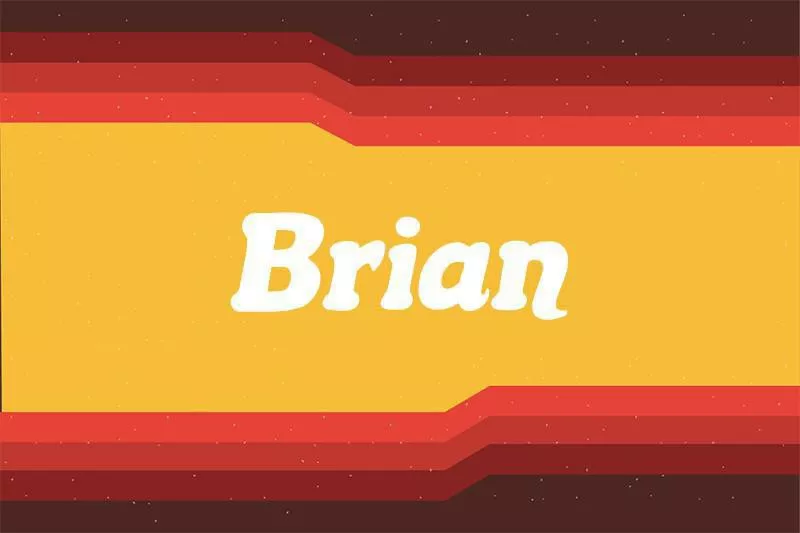
Getty Images
Meaning “strong, virtuous and honorable,” Brian is a name of Irish origin that first entered the U.S. top 100 in 1925.
It reached an all-time high of No. 8 in the late 1970s before starting to fall out of favor. In 2018, it took the No. 235 spot.
1970s: Melissa
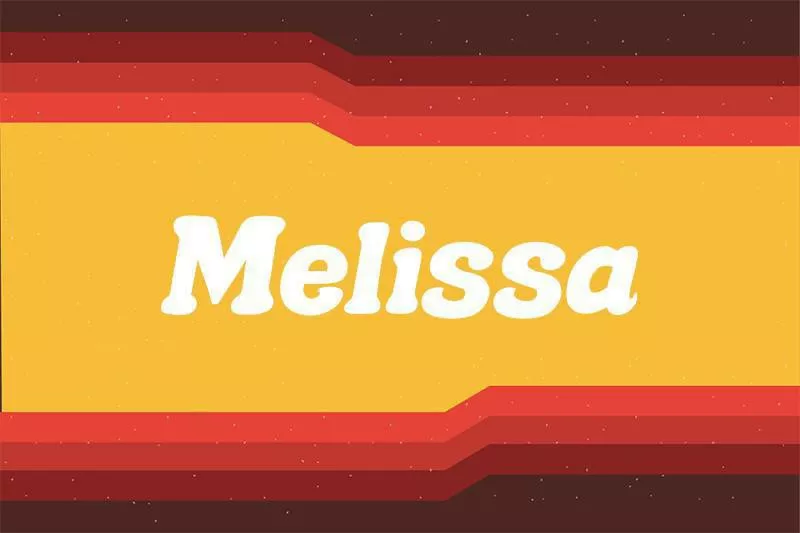
Getty Images
The Greek name Melissa, meaning “honeybee,” was most popular during the 1970s, reaching an all-time high of No. 2 in the latter part of the decade. Today, it’s close to slipping out of the top 300 in the U.S., but remains a top 40 choice in Italy.
Famous bearers of the name include the actress Melissa Joan Hart and the singer Melissa Etheridge.
1970s: Jason
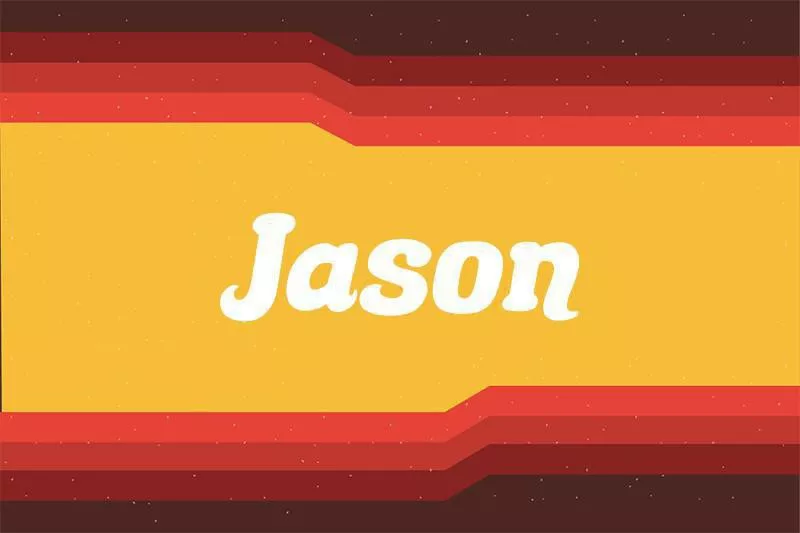
Getty Images
The classic Greek name Jason, which means “to heal,” was a top-three boy’s name for an entire decade — the male Jennifer, if you like.
It looks set to drop out of the top 100 any time now, but it still doesn’t feel as dated as some of its 1970s competitors, like Brian and Kevin.
1970s: Amy
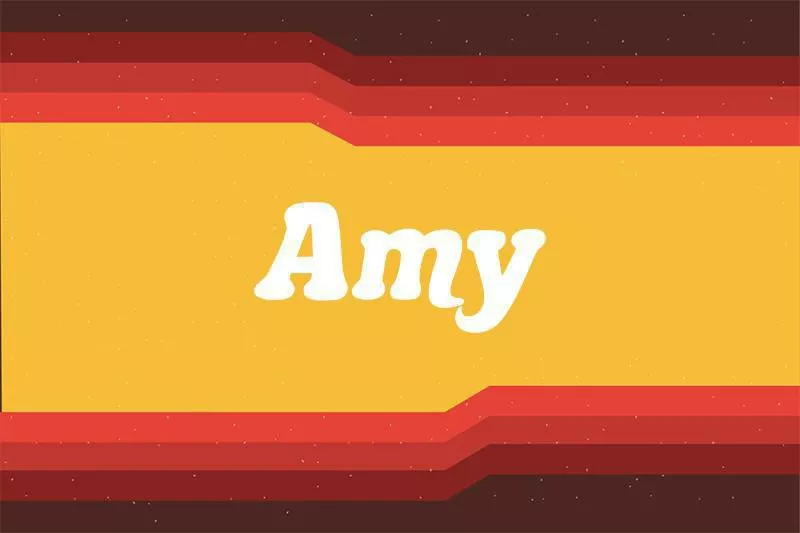
Getty Images
After being a firm favorite in the late 19th century thanks to Louisa May Alcott’s “Little Women,” Amy became less popular until the 1960s, when it enjoyed another surge.
This timeless, back-to-basics name is a variation on the French Aimee, which means “beloved.”
1970s: Christopher
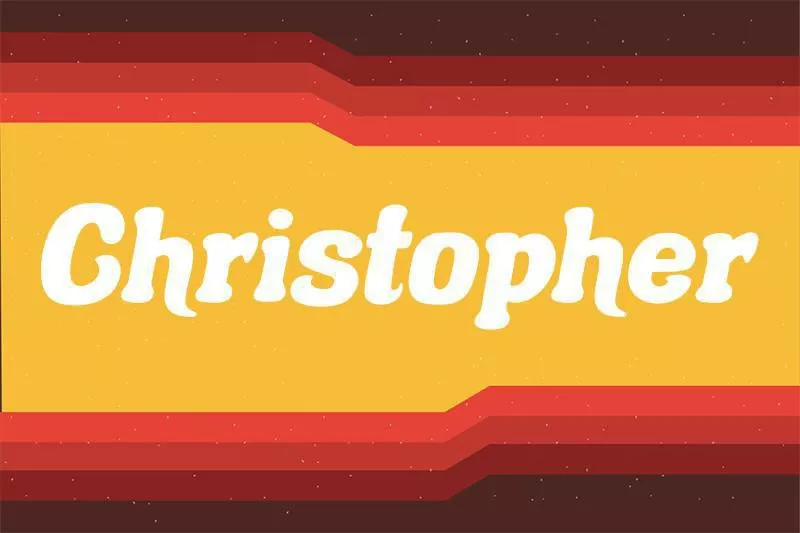
Getty Images
A Greek and Latin name meaning “bearer of Christ,” Christopher has managed to stay in the top 400 since records began. It reached No. 2 in 1973 but never made the top spot.
In 2018, it was still in the top 50, and there’s no reason why it can’t start climbing again, particularly if parents follow the lead of actor Benedict Cumberbatch and director Sophie Hunter, whose son goes by Kit but was given the full name Christopher.
1980s: Jessica
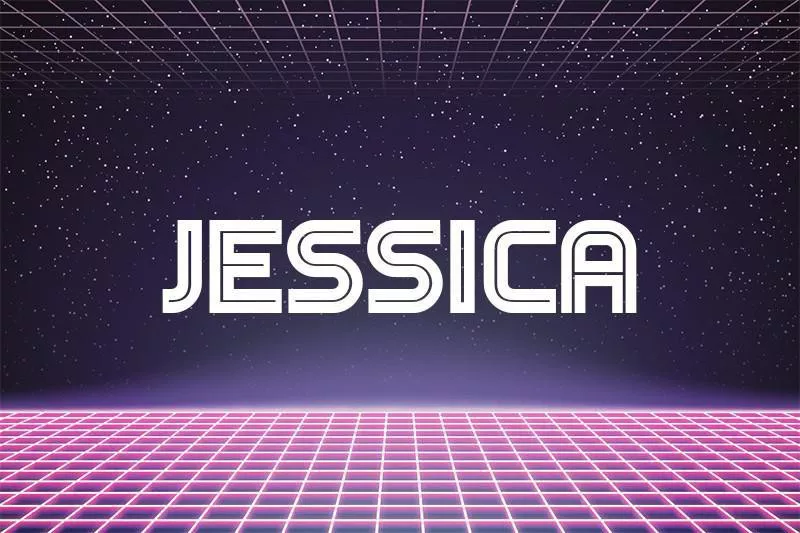
Getty Images
The top-ranking girl’s name of the 1980s was Jessica, and its popularity continued in the 1990s. In fact, it didn’t drop out of the top 10 until 2001.
A Hebrew name of unknown meaning, it may have been coined by Shakespeare for the character of Shylock’s daughter in “The Merchant of Venice.”
1980s: Matthew
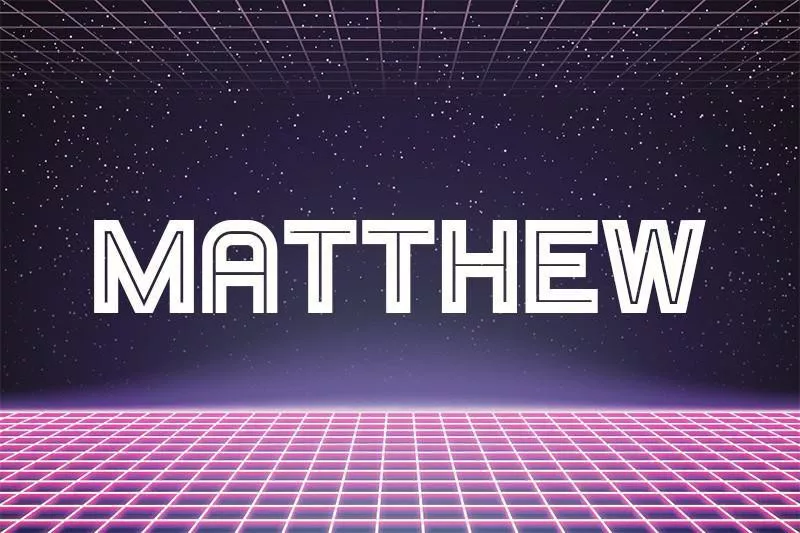
Getty Images
Yet another name meaning “gift of God,” the Hebrew name Matthew was the third most popular boy’s name in America throughout the 1980s and 1990s. It’s still one of the country’s favorites — ranking 20th in 2018 — and is equally popular in Ireland and Scotland.
Famous Matthews include actors Matthew McConaughey and Matthew Perry.
1980s: Amanda
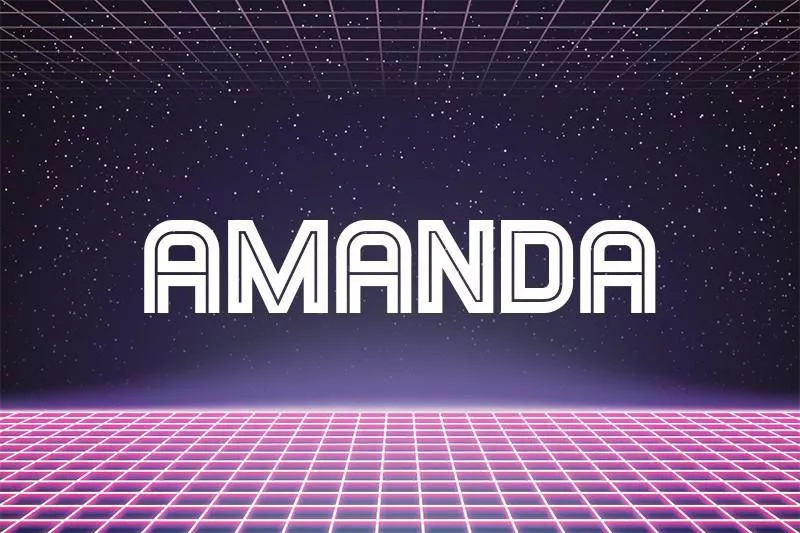
Getty Images
Amanda means “she must be loved,” and the name was certainly loved by parents in the 1980s. It was the decade’s third most popular girl’s name (after Jessica and Jennifer), and is one of those names that manages to feel timeless and trendy.
It ranked No. 369 in the U.S. in 2018, but is still a top 50 choice in Norway.
1980s: Joshua
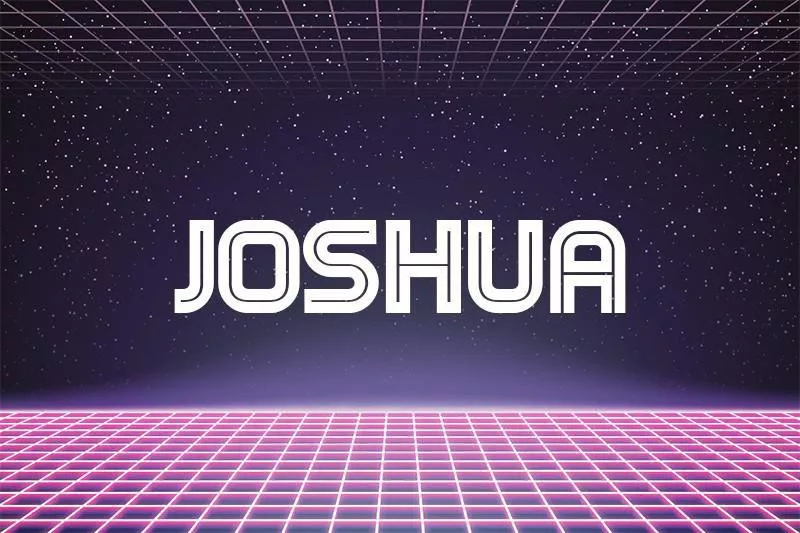
Getty Images
Joshua entered the top five in the 1980s and stayed there for more than 25 years. Meaning “the Lord is my salvation,” this Hebrew name is still a popular choice among parents, whether for its biblical roots or as a more gentle-sounding alternative to Jacob or Joseph.
It’s even more common for British babies, ranking 17th in England in 2018 and 24th in Scotland in 2019.
1980s: Sarah
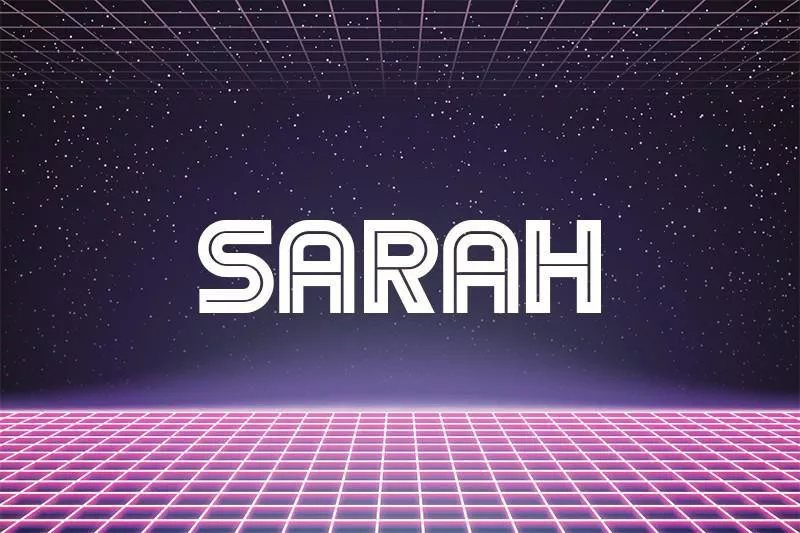
Getty Images
A girl’s name of Hebrew origin meaning “princess,” Sarah entered the top 10 in the late 1970s and stayed there for more than 20 years. Although it’s not as popular today, it still ranked at No. 67 in 2018.
Well-known Sarahs include actresses Sarah Hyland, Sarah Jessica Parker and Sarah Paulson.
1990s: Joseph
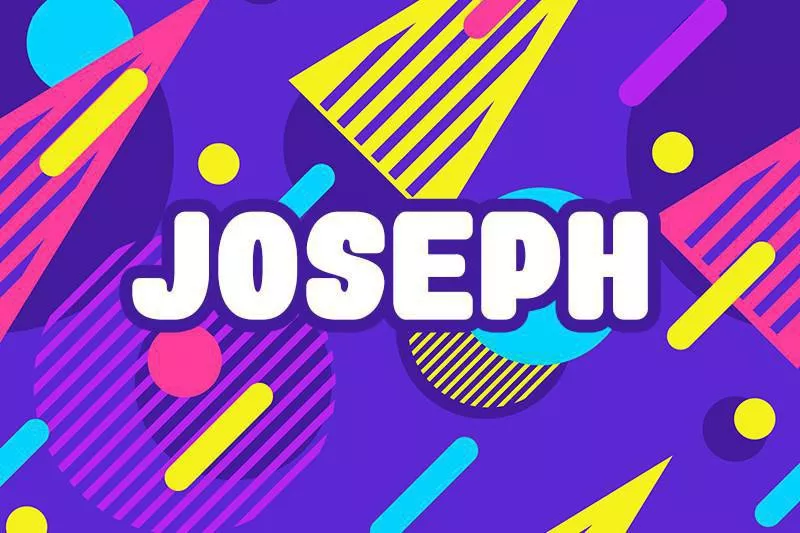
Getty Images
The Hebrew name Joseph, meaning “Jehovah increases,” has been in the top 25 since records began.
Although it’s not as popular today as it was in earlier decades (it was a top 10 name until 1936, then again in the 1970s, 1990s and 2000s), Joseph is guaranteed to remain a favorite.
1990s: Ashley
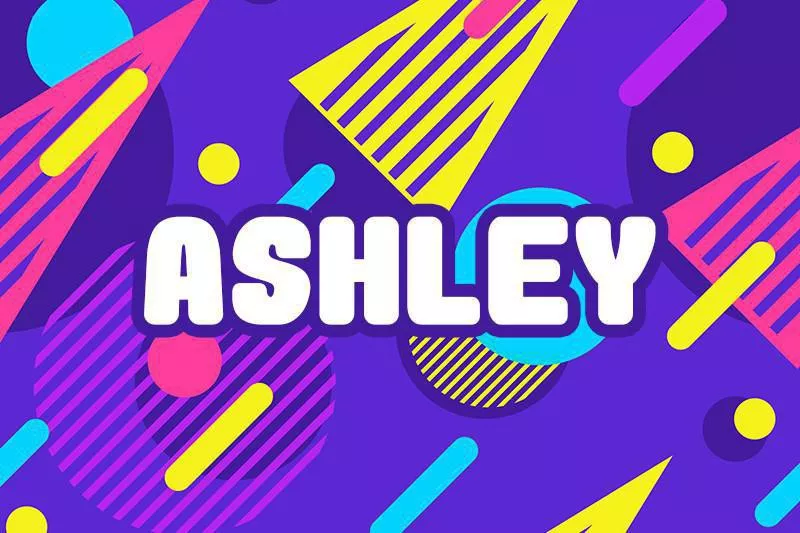
Getty Images
Today, Ashley is truly a gender-neutral name, but in the 1990s, it was strictly one for the girls. It was the second most popular girl’s name during that decade (enjoying the top spot in 1991) and was still in the top 10 in the 2000s.
It means “dweller near the ash tree meadow” and has inspired many different spellings, such as Ashleigh, Ashlee and Ashlea.
1990s: Jacob
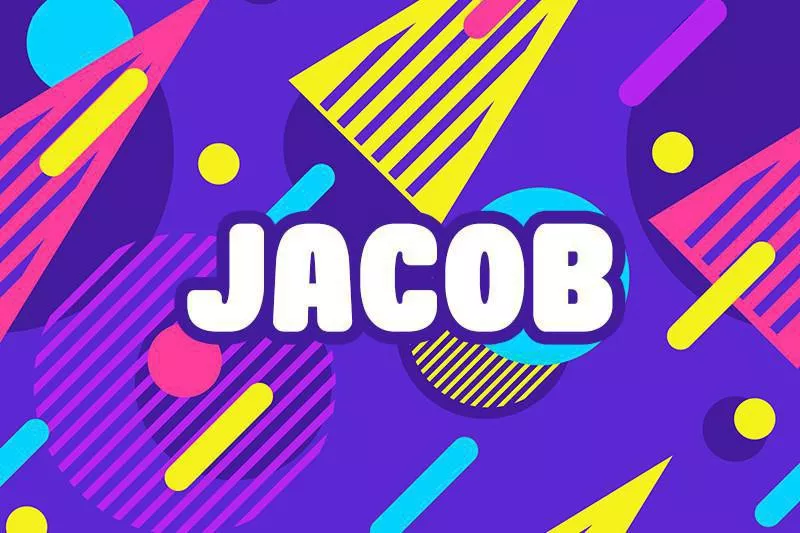
Getty Images
A Hebrew name meaning “supplanter,” Jacob was the fifth most popular name for boys born in the 1990s. It reached the No. 1 spot in 1999, and stayed there until 2012, when it was unseated by Noah.
It ranked No. 13 in 2018, and could conceivably start to climb toward the top again.
1990s: Emily
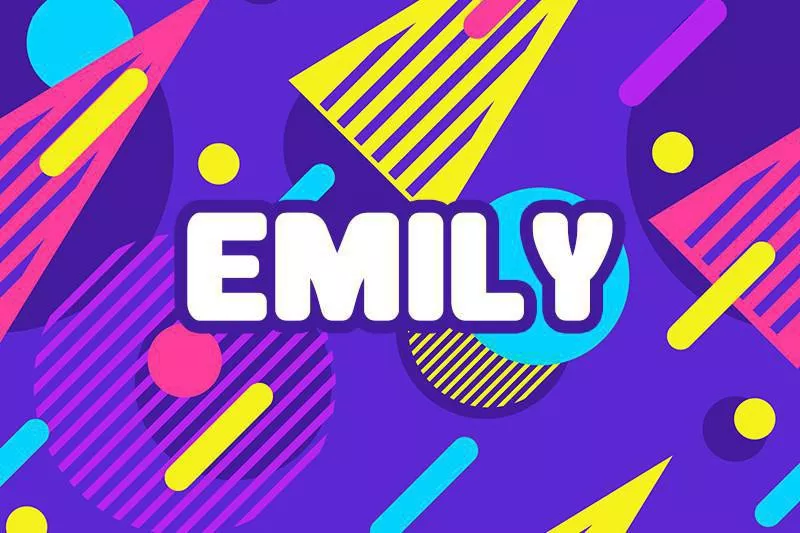
Getty Images
Emily took the top spot for girl’s names in 1996 and enjoyed an 11-year reign. Meaning “rival,” it has no shortage of appealing namesakes, from literary greats Emily Bronte and Emily Dickinson to Hollywood actors Emily Watson and Emily Blunt.
It remains a hugely popular girl’s name in the U.S. (ranking 12th in 2018), but is even more popular in other countries, including Ireland, Scotland, England and New Zealand.
1990s: Nicholas
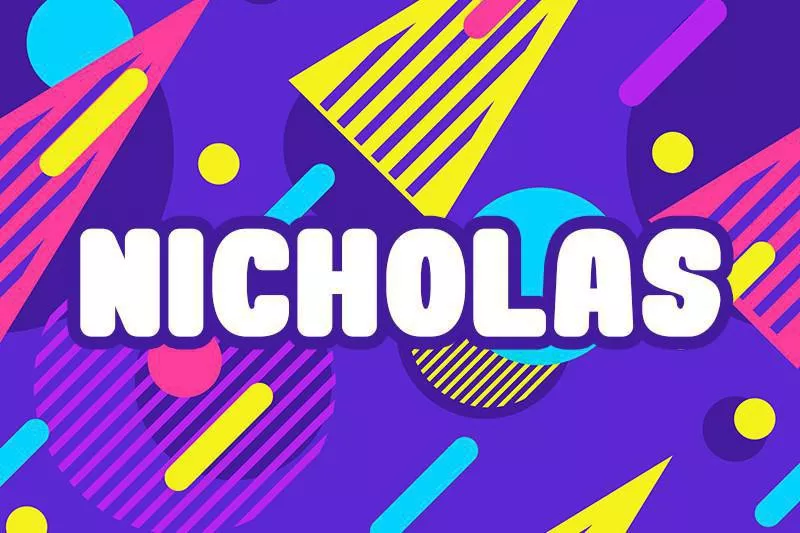
Getty Images
Nicholas has never reached the No. 1 spot on the boy’s name chart, but it was the sixth most popular name of the 1990s, and has stayed well within the top 100 since then.
Meaning “people of victory,” it shares origins with Nike, the name of the Greek goddess of victory.
2000s: Madison
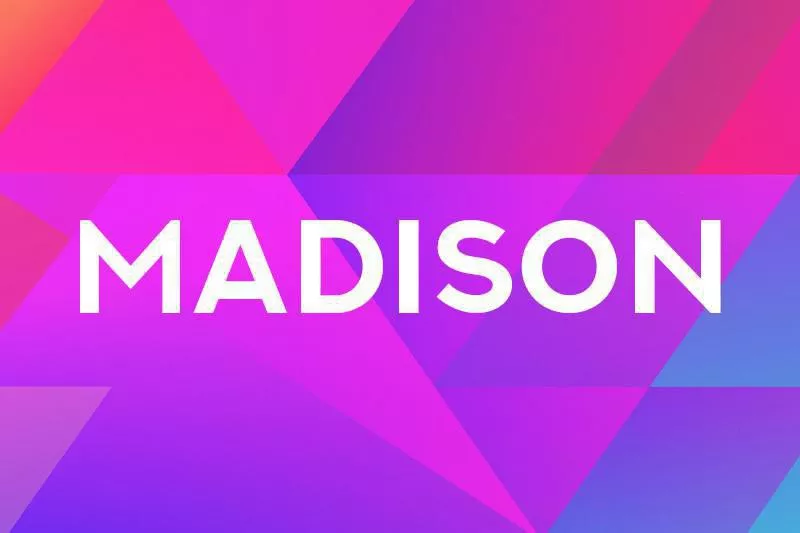
Getty Images
Originally an English surname (a variant of Mathieson, meaning “son of Matthew”), Madison was the second most popular girl’s name of the 2000s. One of its first outings as a female first name was in the 1984 movie “Splash,” in which the mermaid played by Daryl Hannah takes her name from the Madison Avenue street sign in New York City.
Madison has remained a top choice over the years, ranking at No. 22 in 2018.
2000s: Andrew
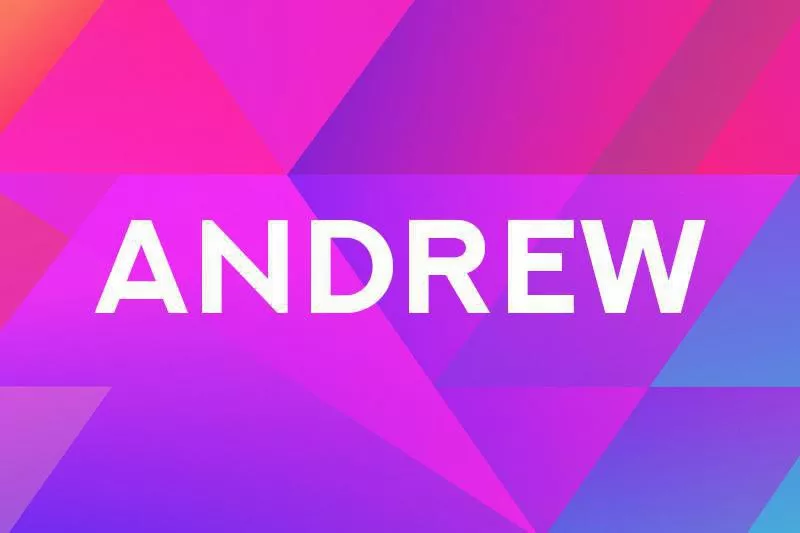
Getty Images
Andrew first entered the top 10 on the boy’s name chart in the 2000s, with its best year being 2003, when it reached No. 5.
Meaning “strong and manly,” it comes from the Greek name Andreas, but also has strong links in other countries; Andrew is the patron saint of both Scotland and Russia.
2000s: Emma
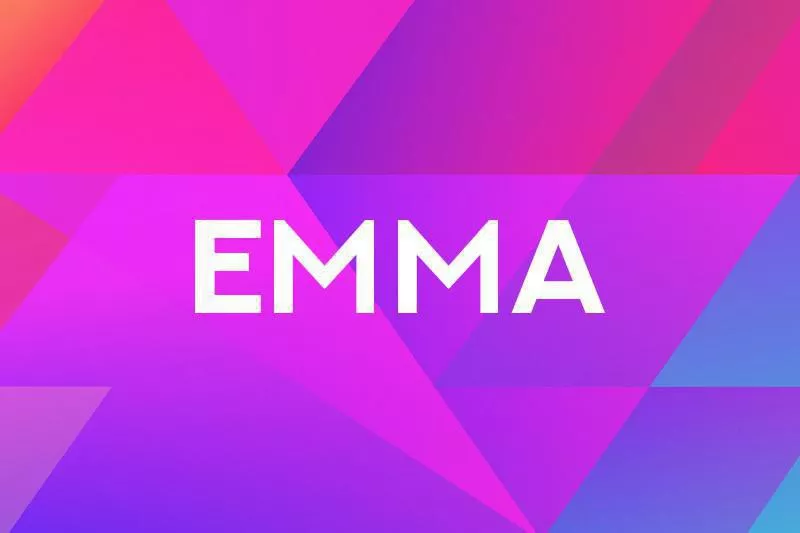
Getty Images
Emma entered the top five for girl’s names in 2002 and finally reached No. 1 in 2008. Although it slipped to second place the following year, it reclaimed the top spot in 2014 and has stayed there ever since.
Emma means “universal” and has many famous bearers, including the actresses Emma Watson, Emma Roberts and Emma Stone.
2000s: Daniel

Getty Images
The fifth most popular boy’s name of the 2000s was Daniel, a Hebrew name meaning “God is my judge.” This classic yet contemporary choice has been in the top 60 for boys since records began in 1880 and in the top 15 for every year since 1972.
The most famous Daniels include English novelist Daniel Defoe and actor Daniel Radcliffe (aka Harry Potter).
2000s: Hannah
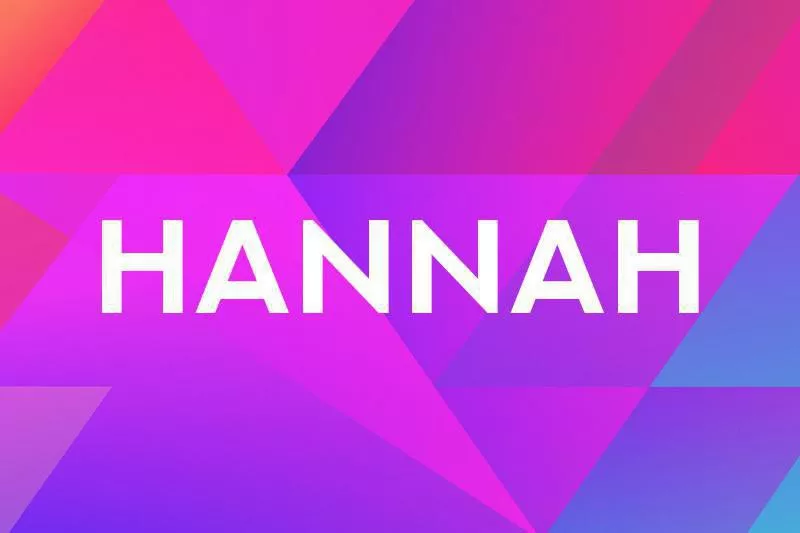
Getty Images
A Hebrew name meaning “Grace,” Hannah first appeared in the top five for girls in 1997, and reached an all-time high of No. 2 in 2000. It’s slipped a little since then but still ranked No. 33 in 2018.
Pop culture nods to Hannah include characters on the TV shows “Dexter,” “Bones,” “Girls” and “13 Reasons Why.”
2010s: Noah
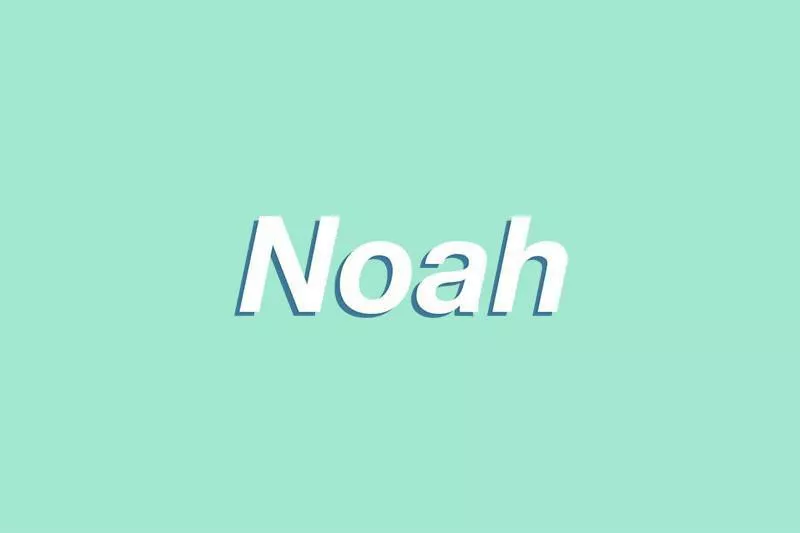
Noah took the No. 1 spot on the boy’s name chart in 2013 and stayed there for four consecutive years. Meaning “rest, wandering,” it slipped to No. 2 in 2017.
Actor Rupert Graves and singer Michael Buble both have sons named Noah, and it has unisex appeal — Billy Ray Cyrus bestowed it upon one of his daughters.
2010s: Sophia
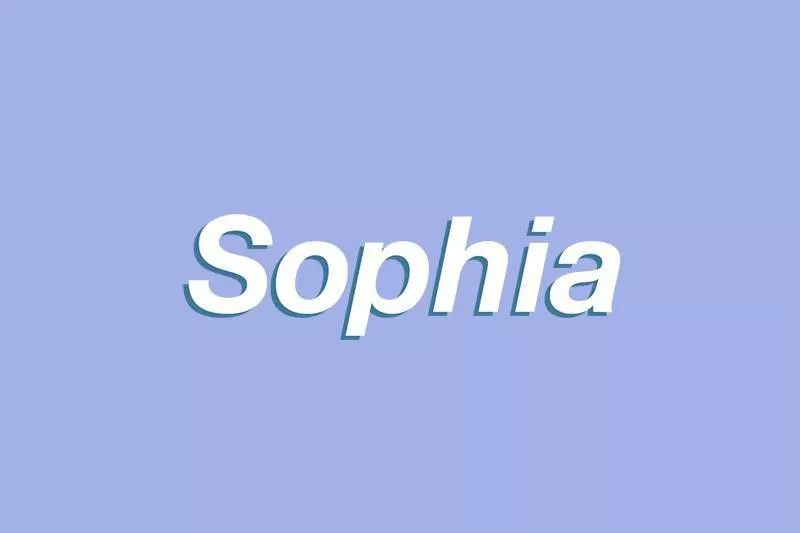
The second most popular girl’s name of the 2010s was Sophia, which enjoyed the top spot for three consecutive years before Emma took its place.
Sophia, which means “wisdom,” is of Greek origin and may also be spelled Sofia — which, incidentally, has also been a top 20 girl’s name since 2011.
2010s: Liam
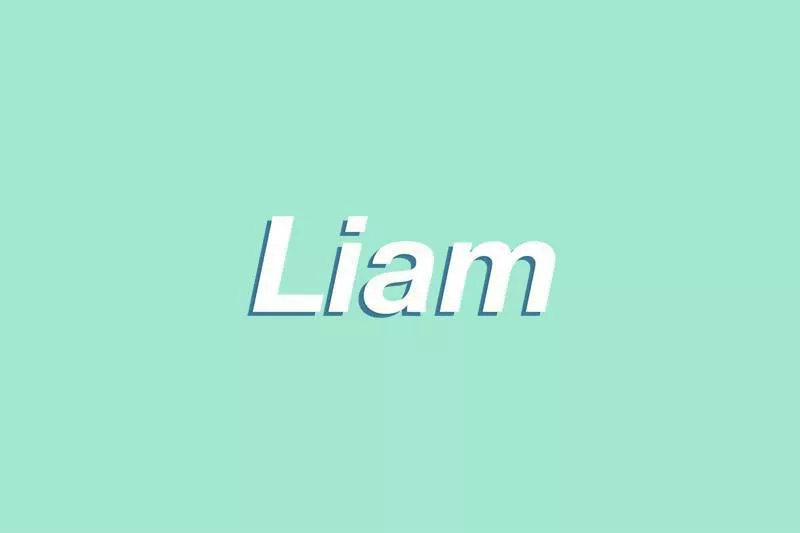
Overall, Liam was the second most popular boy’s name in the 2010s and ranked No. 1 in both 2017 and 2018.
Meaning “resolute protection,” it’s the Irish short form of William and has been the choice of many celebrity parents, from Calista Flockhart to Rod Stewart.
2010s: Olivia

Olivia has never made it to the top of the U.S. baby girl’s name chart, but it’s been biting at Emma’s heels for years, and who knows what the future could bring?
Meaning “olive tree,” it dates back to 13th-century England, but became popular after Shakespeare used it for the name of the countess in “Twelfth Night.”
2010s: Ethan
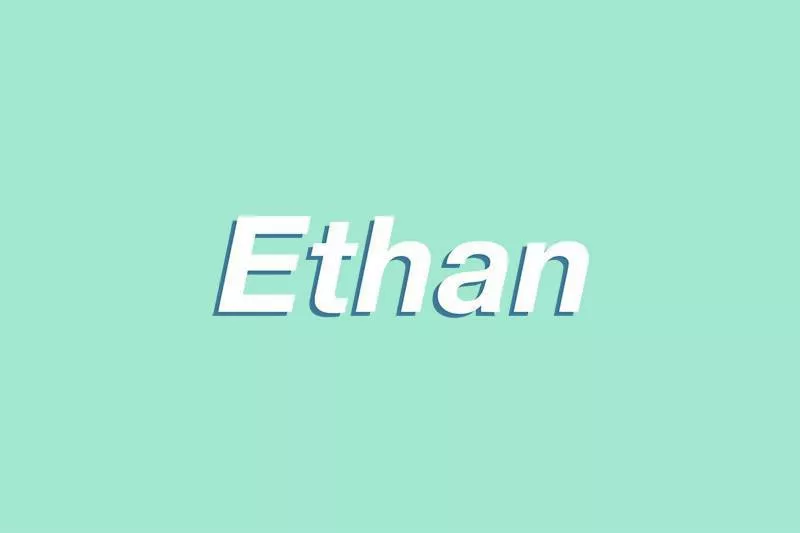
A Hebrew name meaning “strong, firm,” Ethan enjoyed the No. 2 spot on the boy’s name chart in 2009 and 2010, and ranked 12th in 2018.
It’s a popular name around the world, ranking in the top 30 in England, Scotland, Australia, New Zealand and France in recent years.
2010s: Isabella
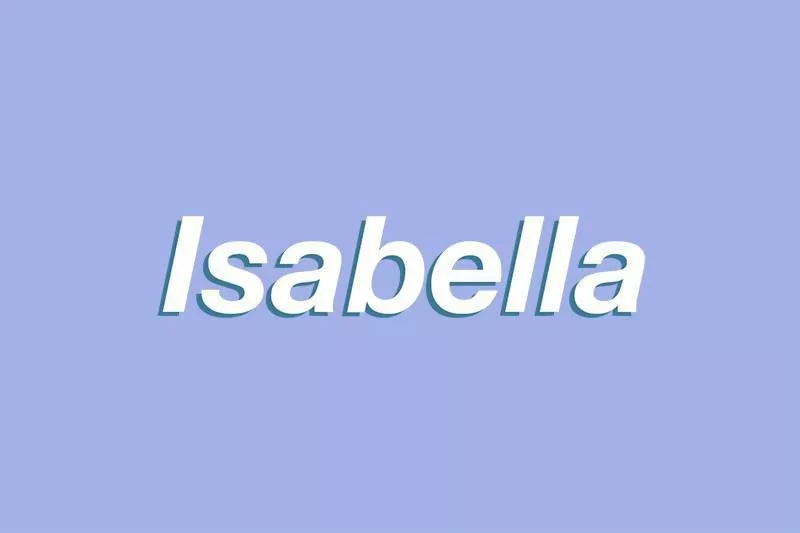
A Spanish and Italian variation of Elizabeth, Isabella means “pledged to God” and has had a top 10 place in the U.S. girl’s name chart since 2004, currently listed No. 4 on the SSA chart. It’s also a top 10 name in England and New Zealand.
It has royal connections in various countries, including Spain, France, Portugal and Norway, and has been featured in many literary classics, from Shakespeare’s “Measure to Measure” to Jane Austen’s “Emma.”
2010s: Mason
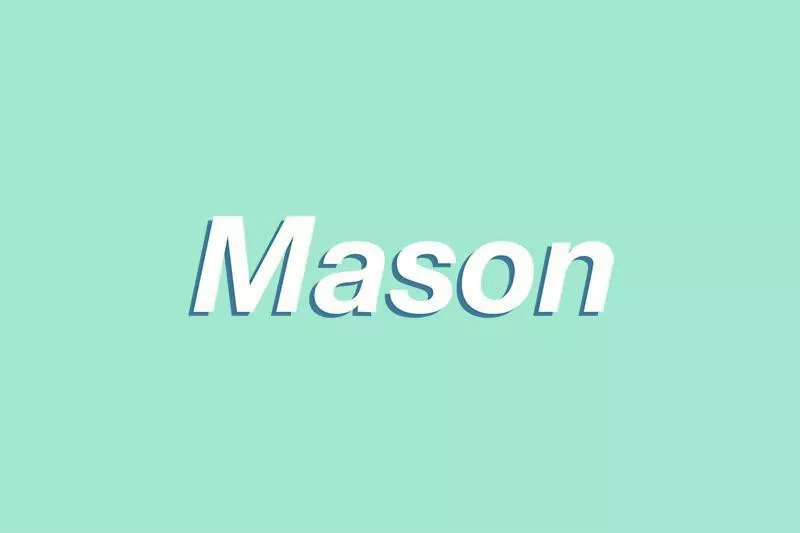
An English occupational name meaning “worker in stone,” Mason moved up 10 spots on the boy’s name chart in 2011 to break into the top 10.
An equally popular choice in Australia and New Zealand, it may owe some of its revival to reality star Kourtney Kardashian, who chose it for her son in 2009.